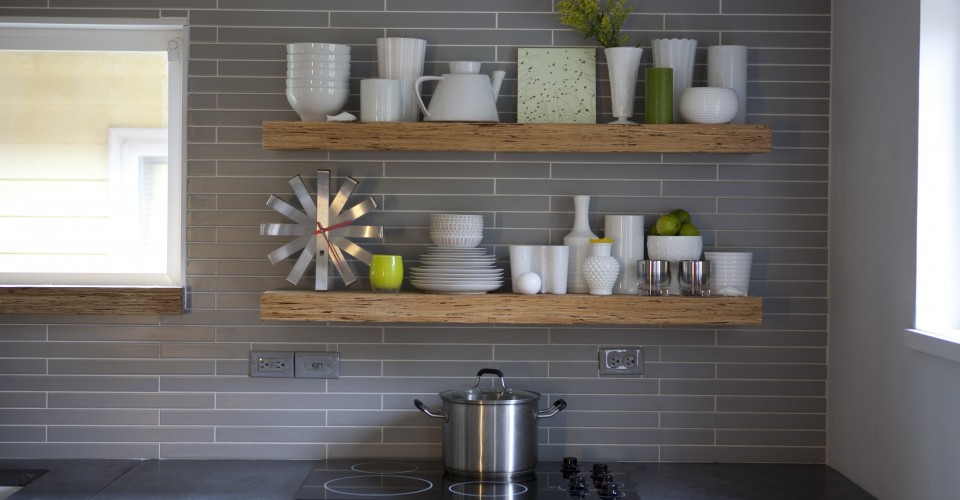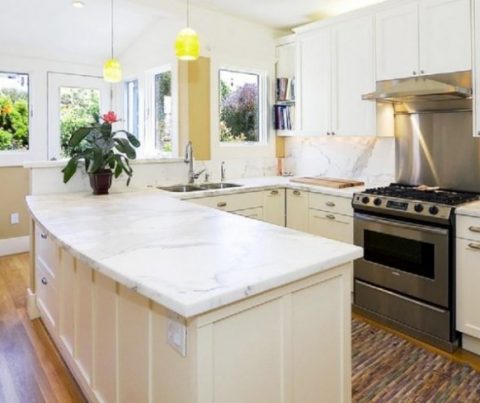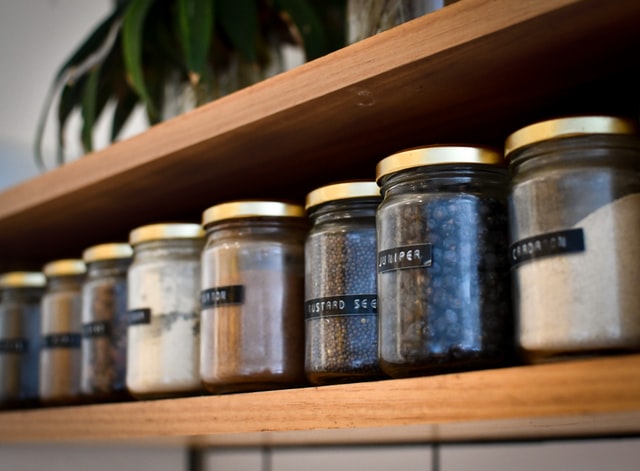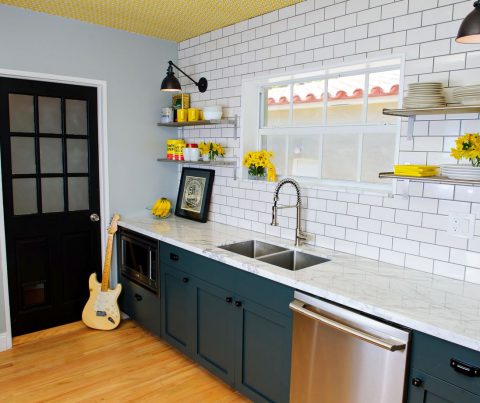If you’re looking to breathe new life into your tired kitchen, consider updating your counters with concrete.
Kitchen upgrades can be costly and time consuming. A relatively small investment in luxurious-yet-edgy concrete countertops can be a game changer that refreshes the look and feel of the kitchen without a full remodel.
There are many advantages to concrete countertops. Like granite, concrete is virtually indestructible, and offers a solid countertop that looks clean and modern. And while it’s certainly a trendy material, its balance of neutrality and style ensures that it will withstand the test of time. Many homeowners flock to concrete not only because of its durability, but because its colors, finishes, shapes, and edge detailing can be completely customized. Concrete can be mixed with light pigments and glass to create a luminescent appearance, or stone and neutral colors for a sleek matte finish. Customizations such as embedded pebbles, recycled glass, petrified wood, or a mosaic inlays can all be worked into the finished product. Concrete is nicely paired with a stainless steel hood or accessories, and is heat and scratch resistant. It is also the ideal material for outdoor kitchens, as concrete can be easily matched with other materials like stone or stucco.
Are concrete counters right for your home? Check out this helpful guide, and let us know what you think!
Maintenance
When properly sealed, concrete counters are very easily maintained, and are as simple to clean as laminate surfaces–as long as you steer clear of abrasive cleaners and aggressive scrubbing brushes that can wear down your counter’s sealer. Concrete counters are not easily stained, and won’t be affected by short term contact with bleach. Concrete counters can develop little hairline cracks that can stem from the natural shrinkage of the material, but most cracks can be prevented with reinforcement methods such as steel rebar and wire mesh, or the use of a carbon-fiber grid. Concrete is susceptible to minor scratching, but these can be easily corrected by spot-treating with sealer or by resealing the entire counter.
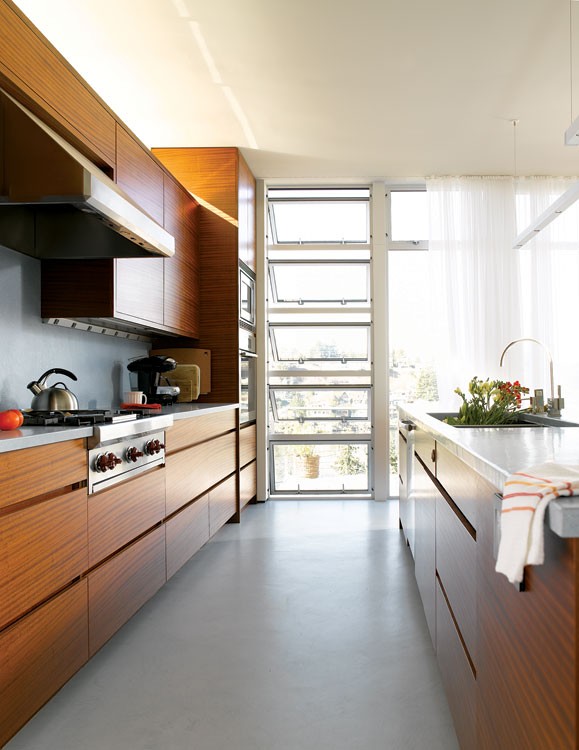 Project completed by Prentiss Architects
Project completed by Prentiss Architects
Cost
Concrete counters are no more expensive than granite or marble, and because of concrete’s durability, you’re not likely ever going to need to redo counters after installation. Installation pricing is based on the contractor’s time and on the cost of materials. An estimated standard cost of materials is $65-$130 per square foot for 1.5 inch thickness, and installation costs can range from $40-$50 per hour, depending on the contractor. Most concrete contractors mix their own concrete to install on site, so you will save on the expense of shipping a large piece of countertop material from elsewhere.
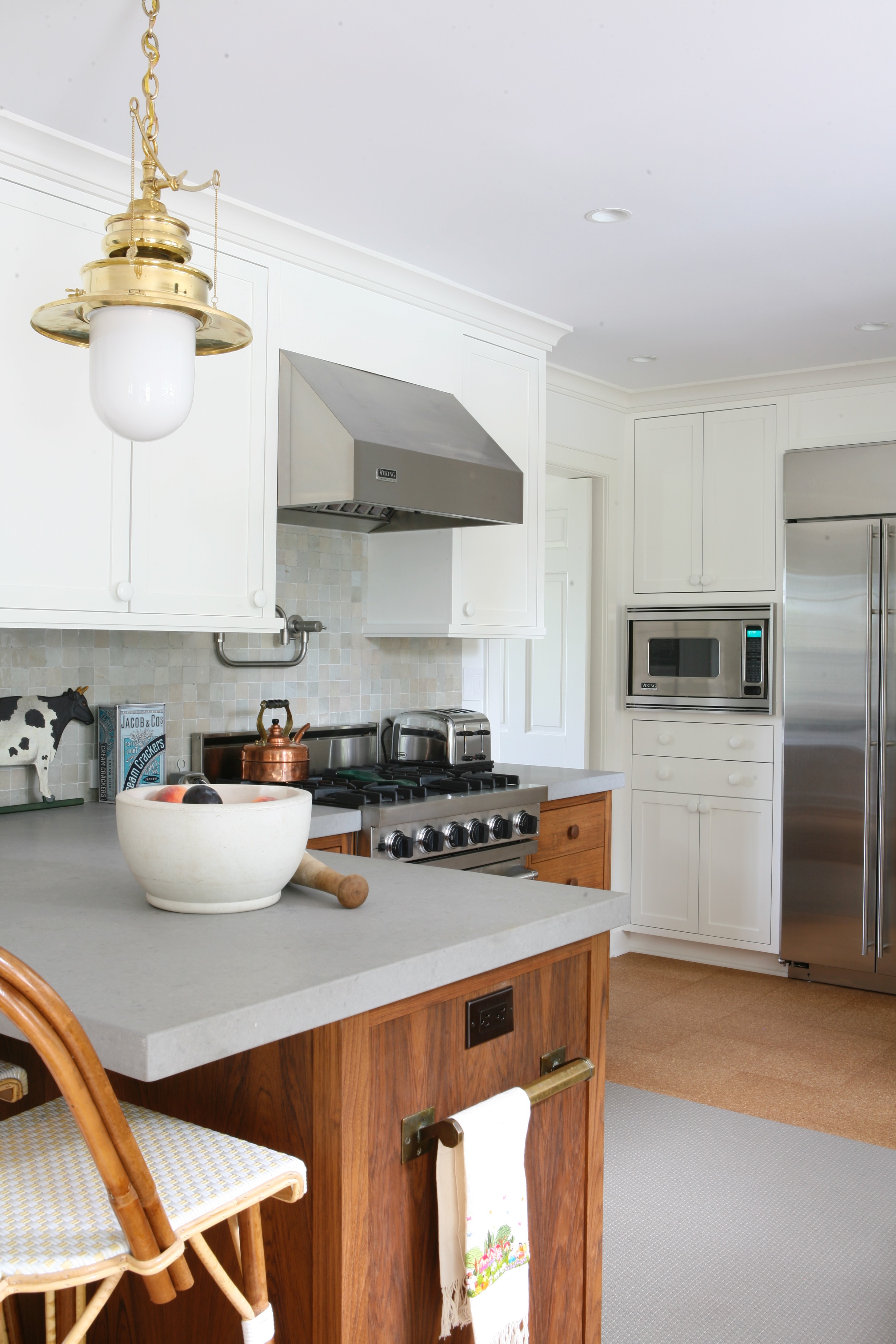 Project completed by Foley & Cox Interiors
Project completed by Foley & Cox Interiors
Appearance
Concrete can accommodate any shape or style kitchen counter, and provides endless color and design variations. There are several options for concrete finishes and sealants that are completely customized, ranging from a silky smooth appearance, to a grainy stone texture. Concrete can even be mixed to imitate marble by using a white concrete mix and white silica sand. Exposing the natural aggregate in concrete will result in a dramatic contrast, especially if you seal your counter in a high-gloss sealant. Sealers can darken the color of the concrete, but are necessary to protect against stains, scratches, and cracks.
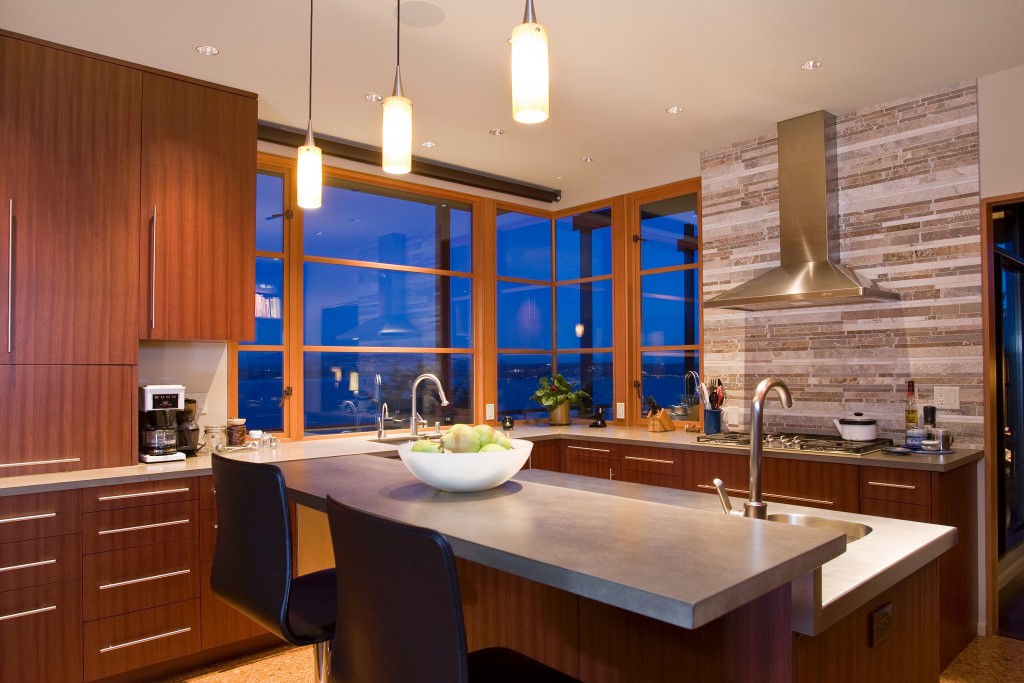 Project completed by Prentiss Architects
Project completed by Prentiss Architects
So there you have the nitty gritty on concrete: durable, inexpensive, versatile, and low-maintenance. Do you love the look of concrete enough to try it in your home?
Top Image Credit: Atelier Drome LLP
Would you trade out your current countertops for concrete? Tell us in the comments!
